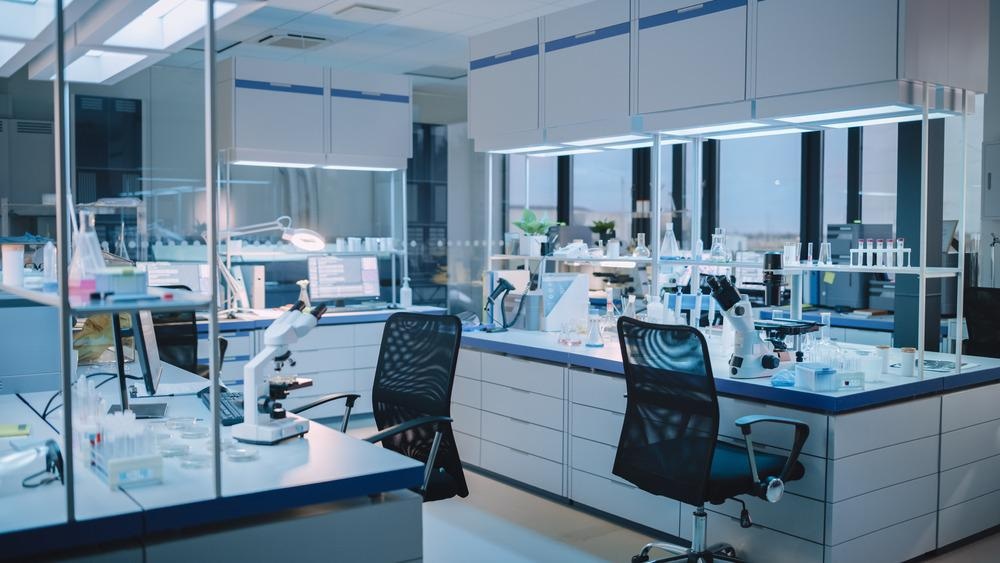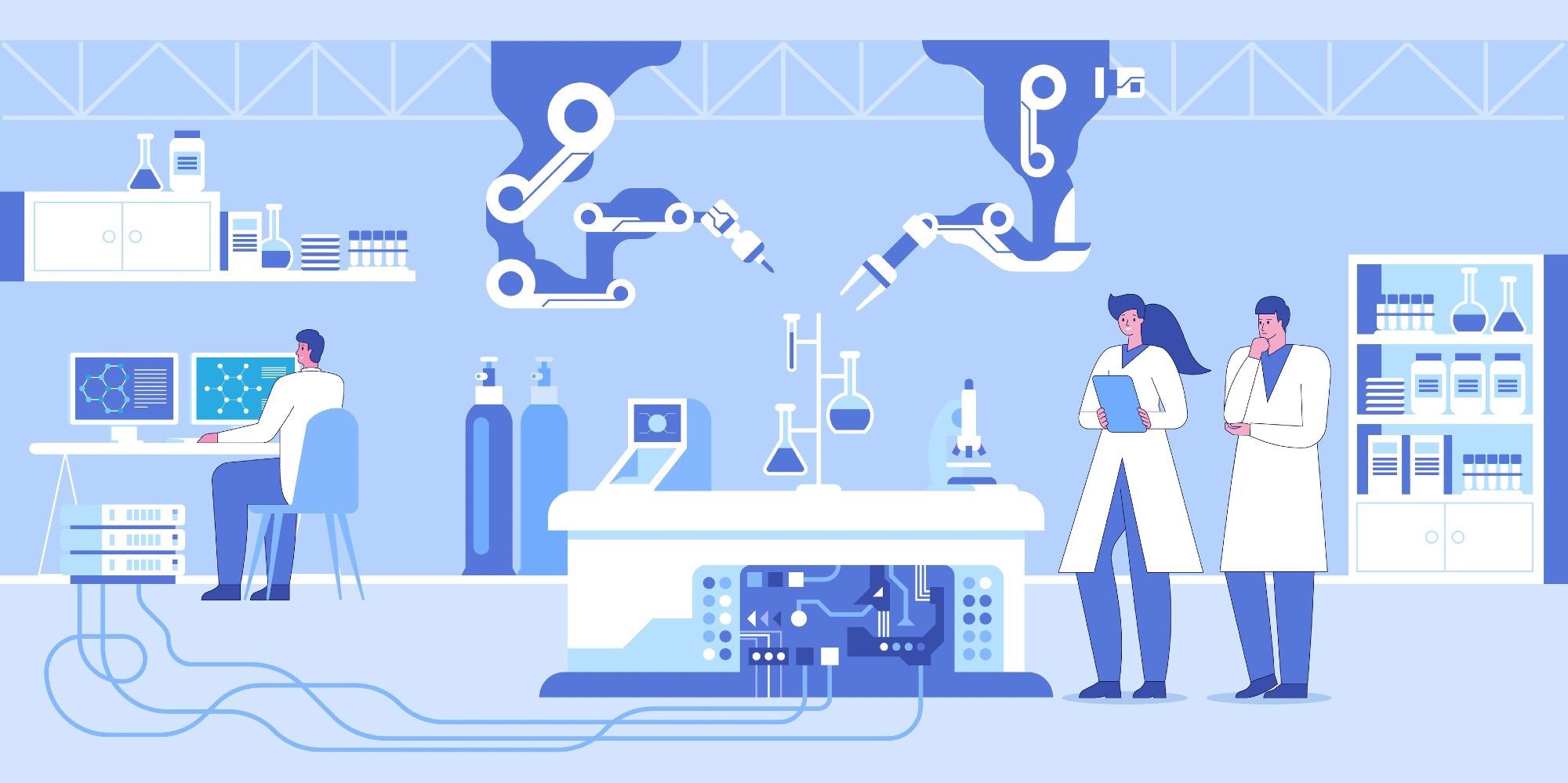In this interview, we speak to Günter Tenzler, founder and CEO of INHECO, about their automated labtech instruments and their role within scientific research.
Please could you introduce yourself and tell us about your role at Inheco?
My name is Günter Tenzler, and I am the founder and CEO of INHECO. As a mechanical engineer with a background in thermodynamics, fluid mechanics, and heat transfer, I support the INHECO team in delivering the best solutions for automated lab-tech instruments used in bio-chemical workflows.
Inheco designs automated labtech instruments for liquid handling platforms for various companies within the life sciences industry. Can you tell us more about your vision behind Inheco and what some of your aims and missions are?
Inheco offers the best automated lab-tech solutions for liquid-handling workflows with a historical focus on thermo-mechanical reaction control (TMRC). With TMRC - aka heating, cooling, and shaking of liquid samples – we deliver the means to start, maintain, and stop a biochemical reaction by controlling the temperature of the sample and its homogeneity.
We will constantly expand and improve our range through innovation, new products, and the best customer service.
Currently, one of the biggest challenges being faced by life science researchers is limited laboratory space. How do your products at Inheco help to overcome this challenge?
Inhecos products are designed to save space in an automated workflow by requiring only a small footprint. Where possible, products are split into a functional unit, integrated onto the deck of a liquid handling platform, and a power&control unit which can be installed elsewhere, for example, under the deck.
Laboratory automation improves the throughput time for workflows by increasing process speed, better process quality, and higher yield. Dedicating space, time, and resources for automated workflows in the lab delivers in the end significant benefits in space-saving. But there are more challenges in life science research, such as the reproducibility crisis[1], shortages of high-skilled laboratory staff, and the general increasing time and cost of developing new drugs.
The success of developing, testing, and approving new mRNA-based vaccines against COVID-19 by Biontech/Pfizer and Moderna in record-low times is a massive accomplishment of biotechnology and science, and the brave woman and men who pushed it forward against strong resistance in the life science community. The success was enabled by flexible, open, automated workflows with high accuracy, precision, and reproducibility, generating a digital data stream to make better decisions faster.

Image Credit: Gorodenkoff/Shutterstock.com
Can you describe some of the automated lab-tech instruments you have available at Inheco and what advantages they have compared to other lab-tech instruments available?
INHECO offers the broadest range of solutions in the market for simple to sensitive to challenging thermo-mechanical reaction control (TMRC) in the market. Our instruments offer basic to better to the best performance, exactly fitting the customer's needs, and for all, we provide the best customer service and support.
INHECOs portfolio of thermo-mechanical reaction control (TMRC) instruments is designed for ANSI/SLAS microplates and offers unique temperature uniformity and mixing quality over all 96, 384, or even 1536 samples on the plate.
Our open cooling & heating plates and shakers combine excellent thermo-mechanical performance, easy integration and handling, and the highest reliability in the market. For more sensitive samples and reactions, we offer incubators and cell storage, giving protection against light, drafts, and ambient-contamination, which can negatively influence temperature uniformity over the plate and the integrity and concentration of the sample.
INHECOs automated On-Deck ThermoCycler, the ODTC, delivers the maximum control of the reaction and protection of the sample, with the best dynamic and steady-state temperature uniformity due to its patented VCM® technology. The heated lid pressed down on the plate to seal each sample for optimal protection against evaporation, ambient and cross-contamination and avoids condensation. The ODTC is an IoT-ready device, allowing remote access for troubleshooting and support, enabling predictive maintenance strategies to reduce the risk of failed experiments and maximize the uptime of these automated systems.
How does Inheco work with its customers to ensure the products meet their needs? How important is making sure your products serve their purpose and are enjoyable to work with and easy to use also?
If we understand the needs and pains of our several types of customers, not only in their core job but during the complete consumption chain of an instrument, we can design, manufacture, and sell better products and services. In the past 21 years since the founding of INHECO, it often was not easy to get the direct "voice of the customer" due to the secretiveness and confidentiality in this young and very competitive niche market, protecting intellectual property and patents in the making.
Nevertheless, INHECO tried to "walk in the shoes" of liquid handling platform manufacturers, 3rd-party integrators, field-service organizations, assay developers, and end-users, trying to understand the task that needs to be performed - that they "don't need a 6" drill, they need a 6" hole."
We are in constant dialogue with our extremely varied base of customers to understand the specific core jobs they want and need to perform and develop the core functionality of our product portfolio accordingly. But we also acknowledge the many additional consumption chain jobs during the complete product lifecycle, which often occupy a significant amount of time and effort in the customer's experience. An instrument that is easy to install, easy to use, easy to clean and maintain, and supports the user during upgrade, troubleshooting, and repair should help people in the lab focus on and enjoy their often complex and challenging work.
Teleshake product range by INHECO
You also offer a variety of webinars on your website that help offer technical support for your products. What can someone expect to learn about from these webinars?
The content and themes of our webinars are based on issues that we see during our service & support activities. Our customers use INHECOs products to build complex systems to perform complicated automated processes with very high requirements for precision and accuracy. INHECO supports our customer's mechanical, electrical, and software engineers during the integration and verification of a liquid handling workflow.
We also help assay developers and application specialists, mostly with a background in biology, chemistry, or medicine, to choose the right instrument and the proper parameter settings for their process step. We are in close contact with the field service organizations to verify and maintain our instruments as part of a more extensive system in the field. Finally, we assist end-users with every aspect of using and handling our instruments in their daily jobs. To control a biochemical reaction, we see ourselves as thermo-mechanical experts for liquid sample tempering and homogenizing.
INHECOs responsibility is to transfer all the necessary knowledge and information during all steps of cooperation from our organization to the customer's specialist groups. Webinars are great because they are very interactive, which gives experts from different backgrounds an easy and direct way to exchange experience, discuss and learn. Our webinars are a proven way to transfer all necessary information and knowledge about INHECOs products to a variety of customer stakeholders, and - as a big add-on – we learn firsthand what additional needs and or even pains our customers have when they use our products.
Lab automation has seen incredible advancements within science in recent years, with new technologies helping accelerate the pace of discoveries. What do you believe the future of laboratory automation within life sciences to look like?
As McKinsey describes, laboratory automation and its twin laboratory digitalization will be the need-to-have basis for "The Bio Revolution" in life science[2]. During the last 10 to 15 years, the new "omics"- research streams like Genomics, Proteomics, Microbiomics, to name a few, have laid the foundation for new ways to design drugs, treatments, and diagnostics for patients – personalized and precise.
The cost of sequencing a human genome went down with the introduction of Next Generation Sequencing (NGS), and sequencing speed went up. The mapping and measuring of molecules and pathways within cells allow us to understand biological processes on a new molecular level and even "engineer biology," like editing genes more quickly and precisely with the new CRISPR technology.
These "omics" are too complex and sensitive for pure manual work, as already discussed above. Additionally, after the successful development of COVID-19 vaccines in less than six months - based on mRNA technology – but carried out by automation and digitalization, BioTech and Big Pharma are accepting these new methodologies and, just as importantly, implementing automation and digitalization as the new standard for enhancing discovery, throughput, and productivity in life science R&D.
When looking to the future of laboratory automation within science, are there any particular challenges that need to be overcome before automation becomes more commonplace within research?
Laboratory automation is the digitalization of the former "hands-on" part of life science research, which you can see and experience directly. Like in any other market, digitalization needs change management, complex software and technology, new tools and processes, and a continuous evolution around customer needs – which are also constantly changing due to new digital possibilities.
Furthermore, laboratory automation competes with everyone for the scarce personnel for IT, programming and data mining and analysis, and security. Like in many other markets, Life Science researchers must overcome old legacy systems and command structures, start to tear down silos, and include IT, software, and engineering into its creative center, where innovation meets customer needs for digital and automated life science work.

Image Credit: Ico Maker/Shutterstock.com
What's next for Inheco? Are there any exciting projects upcoming that you are involved in?
COVID-19 was and still is a deadly pandemic disease that caused more than 500 million known cases and more than 6.2 million deaths. It caused and is causing suffering and grief, and for many is an existential threat. Still, many business areas are affected by lockdowns, closings, travel restrictions, and other limitations.
The Laboratory automation industry faced a different and opposite challenge - not reduction and close-down but excessive growth and innovation to fulfill the world's demand for COVID19-testing and research and development of vaccines, treatments, and monitoring the mutations COVID19 around the world. The laboratory automation market is already in a post-pandemic state. The focus is shifting from building up test capacity towards learning from the Biotech/Pfizer and Moderna success stories. INHECOs current focus is to stabilize an exceptional effort and output delivered for two years of a pandemic into a new normal, where the niche technology of open laboratory automation becomes the new standard for all life science research.
INHECO has started to become a digitalized company with innovative digital solutions. Our new platform will offer IoT-ready solutions for our existing product portfolio of thermo-mechanical reaction control (TMRC) devices and soon for other customer needs such as separation and disposable management.
Where can readers find more information?
www.inheco.com
About Günter Tenzler
Günter started his career as an Assistant Professor at the Technical University Munich, specializing in Thermodynamics and Heat and Mass transfer; he then joined AMS Thermotech and led their customized solutions department. He founded INHECO in 2000 after recognizing the opportunities to further develop and deliver Thermodynamic and heat transfer solutions for Industrial applications.
Over the past 20 Years, Günter has grown INHECO into a leading manufacturer of highly engineered and innovative Lab-tech products. His role is to ensure that our company is focused on achieving our mission of providing the best lab tech products for automated liquid handling platforms.
About Inheco
INHECO offers market-leading, customer-led devices for automated liquid handling platforms. We've been designing, making, and supplying devices for automated liquid handling platforms for more than 20 years. Our customers include major manufacturers, integrators, and end-users in big pharma, biotech, diagnostics, and research & academia.
We develop our products based on our customer needs, market knowledge, and innovative strength.
We are ISO 9001:2015 certified for consulting, development, manufacturing, sales, and support of lab automation products.
So, every product in our range is small and compact, to make the best use of limited deck space; compatible and easy to integrate with end-users' software and decks, and appropriate interfaces for automation. INHECO products are top quality, with exceptional performance and aftercare, for greater throughput and reliable, accurate results every time.
[2] McKinsey Global Institute. The Bio Revolution. Innovations transforming economies, societies, and our lives.